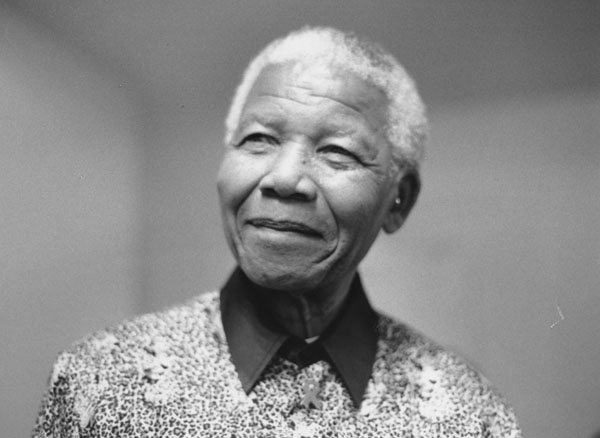Testimony in the Visual History Archive Commemorates Nelson Mandela International Day

Every year on July 18, the world celebrates Nelson Mandela International Day, a day that honors the work and legacy of the South African leader and asks people to spend time fighting for social justice as Mandela himself did.
One woman who did just that, fighting alongside Mandela against apartheid, was Ursula Bruce, who gave testimony to USC Shoah Foundation in 1996.
Bruce was born in Germany in 1928, and fled to South Africa in 1939, just before World War II broke out.
In South Africa, Bruce became engaged to Robert Bruce, who had been a member of the inter-race International Club with Mandela. When the couple was about to be married, it was the future South African president who they turned to to help them with some paperwork.
“We happened to know one lawyer, who happened to be black,” Bruce said. “So we actually have an antenuptial contract drawn up by Nelson. And for years we lived in terror that we would be raided and this document would be found, but this never happened.”
This wasn’t Bruce’s last interaction with Mandela and the anti-apartheid movement. She worked with organizations such as Jews for Social Justice to protest the country’s policies. Bruce had encountered antisemitism as a child in Germany -- and later even as a child in South Africa at a school with a German headmaster -- and felt she had to speak up against discrimination.
Bruce’s background also inspired her son to speak up and act out against his country, a fight that would lead her back to her hometown in Germany. David Bruce refused to join the South African Defense Force after he was called up for service because he did not want to defend a racist political system -- especially knowing his own mother had suffered from a similar system. He was sentenced to six years in prison, sparking an international outcry. Two cities Bruce had lived in as a child in Germany, Giessen and Oberdollendorf, organized against the sentence and invited Bruce back to speak to the church congregations and students protesting her son’s sentence. Because of the international and local public opinion, David was released from prison after a decision by the South African Supreme Court before having completed his sentence.
Though by the time Bruce recorded testimony for the Video History Archive apartheid had ended, she was still actively working to combat discrimination through the Interfaith Movement.
“I think the only way in which, ultimately, this kind of tragedy can be avoided is by trying to create more tolerance and more understanding and trust,” she said.
USC Shoah Foundation recorded 250 testimonies of Holocaust survivors in South Africa.
Like this article? Get our e-newsletter.
Be the first to learn about new articles and personal stories like the one you've just read.